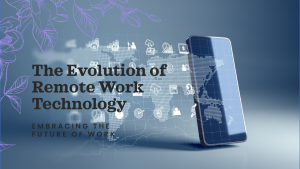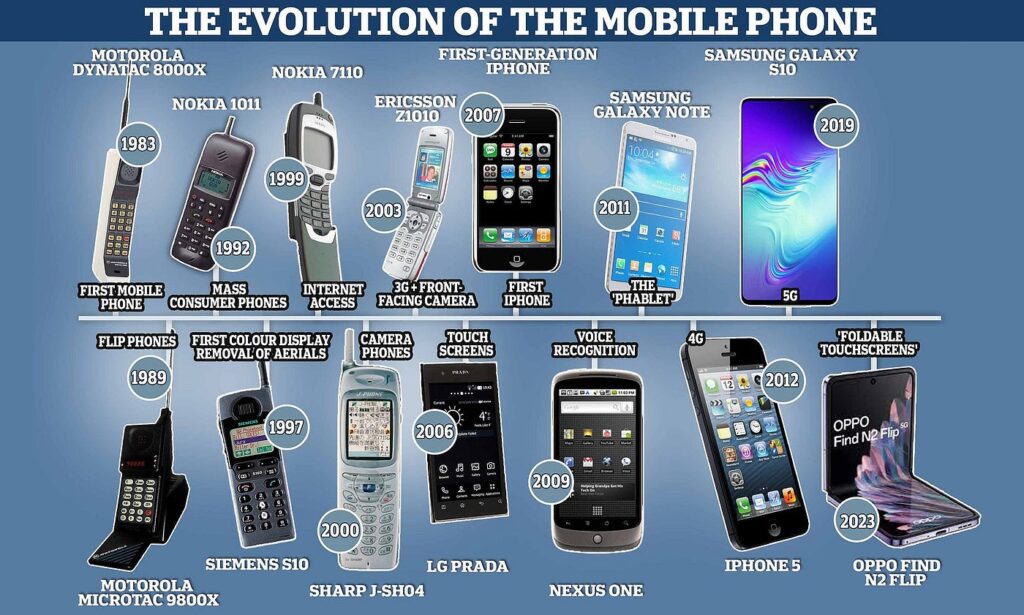Work is no longer about clocking in at an office every morning. Thanks to technology, automation, and digital collaboration tools, remote work has transformed from a temporary solution during the pandemic into a permanent and growing trend.
In 2025 and beyond, remote jobs will continue to evolve as technology reshapes how businesses hire, how teams collaborate, and how individuals build careers. This article explores the future of work, key trends in remote jobs, and the technologies driving the change.

The Shift Toward Remote Work
Before 2020, only a small percentage of the global workforce worked from home full-time. But the pandemic acted as a catalyst, pushing companies to adopt remote models. Fast forward to 2025, remote work is no longer seen as an experiment — it’s the new normal in many industries.
Businesses now recognize that remote work:
-
Saves costs on office space and operations.
-
Boosts productivity when employees have flexibility.
-
Expands talent pools by allowing global hiring.
-
Improves work-life balance for employees.
Technologies Powering Remote Jobs
-
Cloud Collaboration Tools
-
Platforms like Google Workspace, Microsoft Teams, and Notion allow seamless file sharing and communication.
-
Cloud-based project management keeps teams aligned regardless of location.
-
-
AI-Powered Productivity Tools
-
AI assistants like ChatGPT help with emails, coding, and brainstorming.
-
AI project management predicts deadlines and automates repetitive tasks.
-
-
Virtual Reality (VR) & Augmented Reality (AR)
-
Virtual offices are emerging, where teams can “meet” in 3D spaces.
-
AR tools enhance design, architecture, and training for remote workers.
-
-
Cybersecurity Innovations
-
With remote work, cyberattacks are a growing threat.
-
VPNs, biometric logins, and zero-trust security are becoming standard.
-
-
Global Hiring Platforms
-
Websites like Upwork, Fiverr, and Deel make it easy for companies to hire globally.
-
Smart contracts (via blockchain) ensure transparent payments.
-
How Remote Work Is Evolving in 2025
1. Hybrid Work Models
Not all companies are fully remote. Many use hybrid systems, blending office time with work-from-home flexibility. Employees enjoy both face-to-face collaboration and independent productivity.
2. Rise of Digital Nomads
Thanks to 5G, Starlink internet, and global coworking spaces, professionals can work from anywhere — beaches, mountain towns, or big cities. Countries are even offering digital nomad visas.
3. AI and Automation Changing Job Roles
While AI replaces some repetitive tasks, it creates new opportunities for AI managers, digital strategists, and remote tech support specialists. Workers who embrace upskilling will thrive.
4. Remote Culture Building
Companies are investing in virtual team-building activities, online happy hours, and employee recognition platforms to maintain morale.
5. Decentralized Workplaces
Blockchain and Web3 technology may soon decentralize companies entirely — creating “DAOs” (Decentralized Autonomous Organizations) where employees vote on projects and profits are shared transparently.
Benefits of Remote Work Evolution
-
For Employees: Flexibility, reduced commuting stress, global job access.
-
For Employers: Lower costs, access to top global talent, happier employees.
-
For Society: Less traffic pollution, economic opportunities spread across rural areas.
Challenges of Remote Work
-
Loneliness & Burnout: Lack of physical interaction can affect mental health.
-
Time Zone Differences: Global teams sometimes struggle with coordination.
-
Cybersecurity Risks: More devices online = more potential data breaches.
-
Skill Gaps: Workers must continuously learn new digital tools to stay relevant.
The Future Outlook
By 2030, experts predict:
-
70% of professionals will work remotely at least part-time.
-
Virtual offices will feel as real as physical spaces.
-
AI teammates will collaborate alongside humans.
-
Global freelancing will dominate industries like design, marketing, and IT.
Remote work is not just a trend — it’s the foundation of the modern workforce.
Final Thoughts
The future of work is being shaped by AI, VR, blockchain, and global connectivity. Remote jobs are becoming smarter, more flexible, and more human-centered.
For employees, this means embracing lifelong learning and adopting digital tools. For businesses, it means investing in remote culture, security, and innovation.
The question isn’t “Will remote work last?” — it’s “How will you adapt to thrive in it?”


